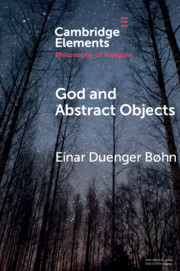Element contents
God and Abstract Objects
Published online by Cambridge University Press: 19 July 2019
Summary
Information
- Type
- Element
- Information
- Online ISBN: 9781108558112Publisher: Cambridge University PressPrint publication: 08 August 2019
References
Accessibility standard: Unknown
Why this information is here
This section outlines the accessibility features of this content - including support for screen readers, full keyboard navigation and high-contrast display options. This may not be relevant for you.Accessibility Information
- 13
- Cited by
